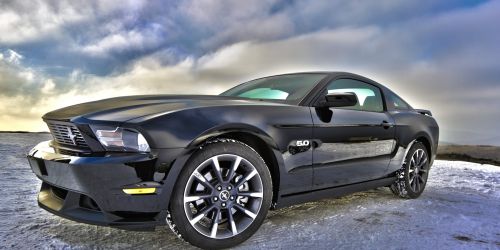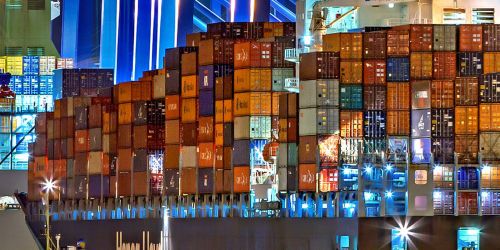Frequently Asked Questions
FAQ
FAQ with Get Cars Japan Ltd. vary.
Common FAQ are following below but be sure to contact us should your particular question not be listed.
Just click on a question below to see the answer.
We are happy to help.
For all auctions, the seller sets a reserve price and a computer runs the numbers on the screen over that reserve (regardless of whether anyone is actually bidding or not).
Because of this, it is our practice to NOT bid unless the reserve is met (this means the computer is no longer bidding and we are only bidding against real people. Bidding against a computer inevitably results in paying much more than the second highest bidder (i.e. too much).
If the actual bidding doesn’t go over the reserve, the car doesn’t sell and we have a chance to buy via negotiation. It also means that you may sometimes see a result of “passed” even though the pass price was under your bid.
When a lot passes under your bid, we enter a negotiation (providing it is still within your budget) for the minimum offer allowed.
The seller will either accept it or try to bargain for a higher price.
There is a 10000yen negotiation fee charged by the auction when we buy via negotiation. This fee will be added to the car purchase price.
We enter at least 2 or 3 negotiation offers almost every day, and we find we get quite a lot of bargains this way.
This Youtube video shows how it works:
All customers can create a login to our online accounting system Xero. This will allow you to view all invoices and see the payment status, amount received in our account, and your current balance. Simply click XERO at the top right of the online invoice and follow the directions.
When you open any car page you will see 4 main icons at the top for “Details of Vehicle”, “Sales Statistics”, “Cars Catalogue”, and “Check Vehicle”.
If you click on “Cars Catalogue”, it will show you the type of engine and hp etc for each particular model.
If you then click on the model name under the “Modification” column, you will get a list of specs for that car.
Another useful trick is to use the “month of production” function. Above each auction sheet you will see a small MONTH OF PRODUCTION box with a blue Find” button to click.
Find the chassis number on the auction sheet, enter it in the text box under MONTH OF PRODUCTION and click FIND.
This often gives us some extra information on the car specifications.
This is actually more common that you would expect.
There are dealers who buy cars at bargain prices, then clean and enter them in another auction soon after to try and make a profit.
Another possibility is the seller got his mates to bid to push the price up, but it backfired and he then had to move it to another auction to sell.
We should also consider that the person who bought the car may have found something wrong with it, and entered it straight back in the auction.
Some auctions take time for the result to appear in the auction page as our server has to wait for the data to be released. In rare cases they do not appear at all. We have this problem especially with USS auctions (the start time is also not correct).
This site is not maintained by us, but an independent data gatherer that provides all of the upcoming auction items as well as result listings.
On the auction sheet there are 2 sections.
The first is for the seller to fill out and write his “sales points”
The second is for the auction inspector to write any details he thinks the buyer needs to know about the car (mainly anything wrong or changed).
It is quite common for the seller not to mention service records or log books even if the car has them.
But it is also a good selling point, so many people do write it.
If you do not want a car without service logs, it may be best to not bid on those that do not mention it because there is a chance they are lost or not available.
This means the vehicle did not sell due to bidding not reaching the seller’s reserve price. In these cases, we can make offers via the auction house to negotiate a purchase price.
Cases of such fraud do seem to occur. This is why you need to choose a certified company that is a member of an accredited organization that can vouch for them.
Get Cars Japan, Ltd. is a member of JUMVEA (Japan Used Motor Vehicle Exporters Association). This organization is government sponsored, and any company with fraudulent claims made against them are unable to maintain membership.
Our commission works on a sliding scale where we have set a very tight minimum FOB charge for customers buying lower end cars, and add a small percentage for higher end vehicles.
The Japanese consumption tax is 10% which means we constantly have extremely high amounts of money tied up and affecting our cash flow. We pay 10% per auction purchase and since we do not charge clients this tax, our company needs to offset the outlay of the tax by charging only 2% of the purchase price for vehicles over 700,000 JPY, and 4% when the auction price is over 1,500,000 JPY.
You will notice that many companies charge 10% on all purchases.
In cases where the auction is in our region, it is often possible to inspect cars and take extra photos. However, due to the auctions being nationwide, it is more common for us to rely on the auction inspector’s comments and markings on the map.
Due to our many years experience with this, we are astute judges of a car’s condition, and can judge the quality and condition of the car very easily.
Customers are always satisfied that the car was in the condition as we described and we stand by our experienced opinion.
We also have partners at major auctions throughout the country and are often able to provide a “Premium Inspection” for a fee of 5,000 JPY. Most auctions also have telephone inspections through which we can further acquire information on any car that is being auctioned.
For a car shipping by RORO (Roll On Roll Off), the customer pays an export/commission fee we refer to as FOB (Free on Board) charge.
The discounted rate for this is 65,000yen (to be received within 3 days of the auction ending). Other costs are transport of the car from the auction to the dock (average 5,000yen but can be 20,000yen or more if the auction is far away), and a bank fee of 2,500yen (our bank charges 2,500yen to receive international transfers in Yen).




